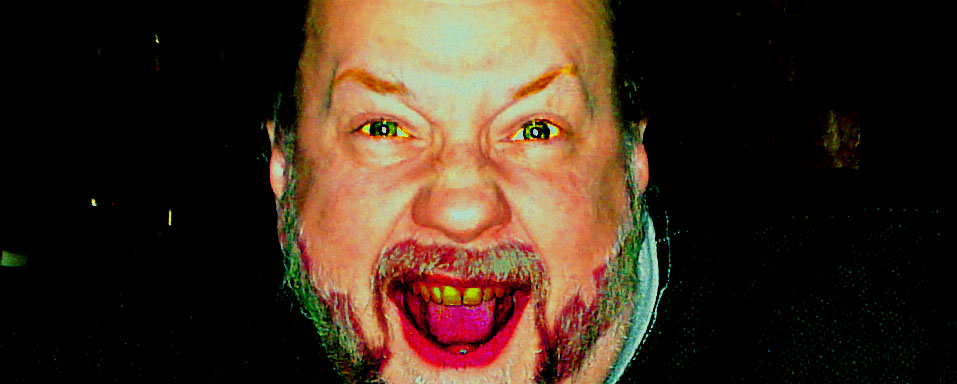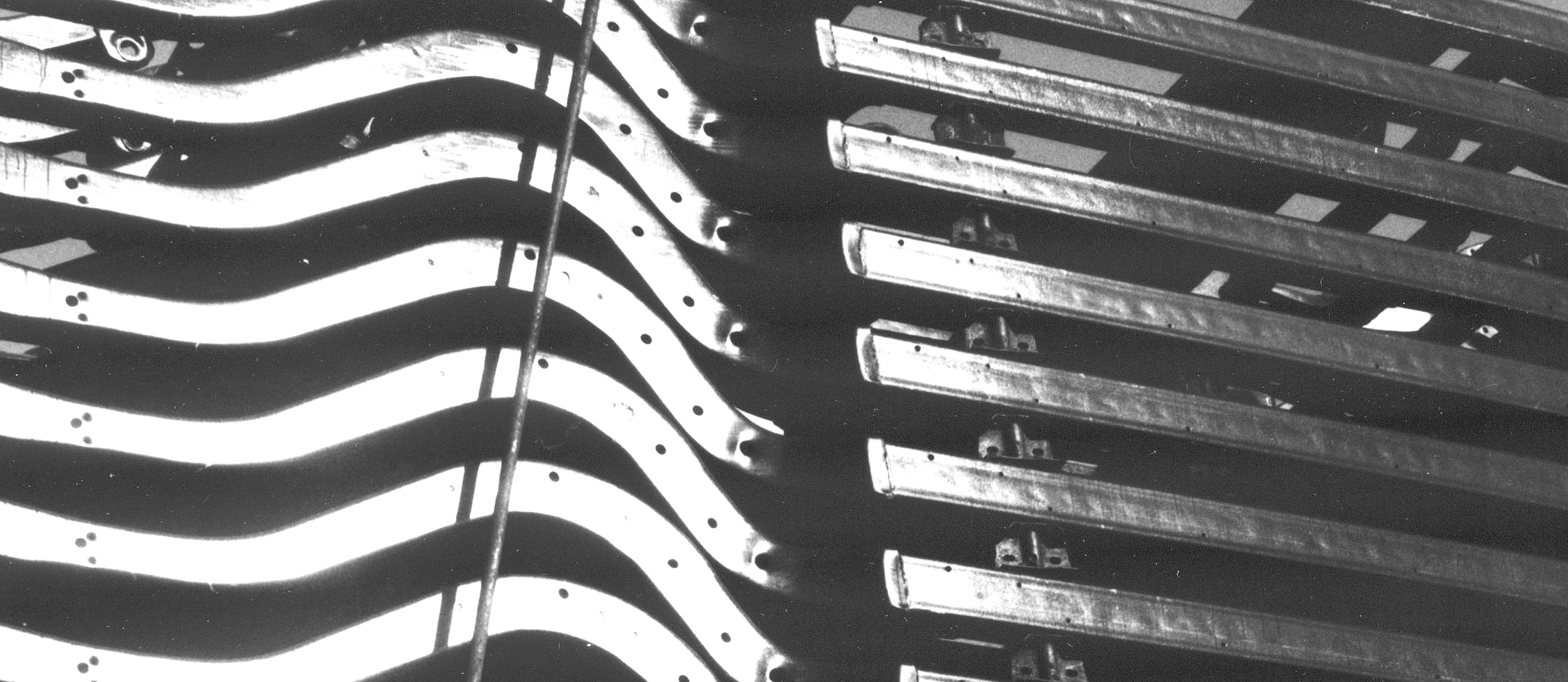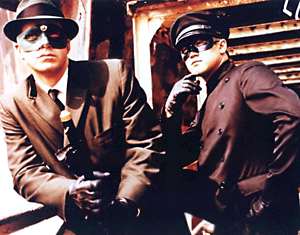On Thursday, July 21st, I gave a talk at the Daniel Boone Regional Library on the nature of science fiction. I had a good turn-out, the room was almost full, and the talk was generally well-received.
I used a comparison I’ve grown used to deploying, comparing Star Wars to something else and pointing out how it is not science fiction but rather a quest fantasy dressed up like SF, which is not at all uncommon, but can be confusing when talking about the differences that make SF unique. Normally, this point gets across without too much trouble and for that reason, perhaps, I’ve grown a bit complacent in how I present it.
One person in the audience kept coming back to it, arguing that my definition of what makes Star Wars a fantasy is not sufficiently differentiating to separate it from science fiction. We went back a forth throughout the evening. The exchange was fun, respectful, and illuminating, but I still think I failed to address the concerns made. For one, I didn’t identify the direction from which the objection came well enough.
The question centered around the requirement that SF be about how humans deal with significant changes in the environment around them, causing them to see the universe fundamentally differently than before, requiring them to change. As stated, all fiction of any worth makes this demand of characters. No change, no drama. I put the emphasis on the specifics of the environment—an environment that is changed out of our norm by advances in technology or encounters with aliens or one of the several other motifs SF has deployed in the past, like time travel, telepathy, advanced weapons, faster-than-light travel and so forth.
Well, Star Wars has all that, so why doesn’t it qualify as SF?
I think I failed to get across that the changes elicited by such things must also be in accord with the nature of the new environment. The fact is, Luke doesn’t meet that criteria, nor really does anyone else in Star Wars. Nor do they have to, because the changed milieu in which they move is not acting upon them the way it would in a science fiction novel.
My questioner seemed to be taking the stance that Luke was going through a Hero’s Journey, ala Joseph Campbell’s thesis in The Hero With A Thousand Faces. Everyone knows, or should know, that Campbell was a close adviser to George Lucas on the first two movies and they conform to Campbell’s mythic analysis. Why does this make Star Wars fantasy instead of science fiction? Don’t SF characters go through a Hero’s Journey?
Well, many do, certainly, but not all, and science fiction really isn’t concerned with reifying those kinds of myths. And here’s where I fumbled.
Luke Skywalker’s entire journey is destined. He walks the path he does to fulfill the potential left unfulfilled by his father, making this a story tied to a thick strand of myth that is the same in that film as it was in Aeschylus or Euripedes. The universe through which Luke moves is functionally no different than the myth-strewn landscape through which Hercules, Theseus, or Perseus walked. The aliens in Star Wars are not really aliens, but mythic archetypes and racial stereotypes. Take the whole corpus of Star Wars and drop it into any of the stories of the Age of Heroes and the only things you would have to change are the modes of transportation and the weapons. Luke doesn’t have to change because who and what he is will not meet the changed conditions of the universe, but because the universe has a predetermined role for him to fulfill and he need only become what he can inevitably become. The universe in this instance is almost a conscious enabler in a process that has nothing to do with what we know of nature.
Luke’s training is the same as that of any warrior monk of any period of history. He’s a squire, an apprentice, Obi Wan is a knight, the Emperor is a wizard and Darth Vader his co-opted henchman. Where have we seen these before? The universe of Star Wars is a magic quest that sees no reason for anything to change simply because it is different.
Rather than compare it to what it is usually compared with—Star Trek—let’s compare it to something strikingly different. Blade Runner. Is there a Hero’s Journey in Blade Runner? Sort of. Deckard must go on a quest, meeting challenges, in order to become who he really is. But the landscape has utterly changed, so when he gets to the end he has not triumphed. All he has learned is that he was lied to all his life and that what he is has no place in the society he has just defended. And what are the challenges he has faced? Are they threats to society? Perhaps, but not in any reifying way. He has to kill beings like himself who are designed to a purpose and want only to be free of their destiny. Very much like Deckard himself, who has at the beginning quit the service he finds damaging to himself.
The changed conditions of the environment require him to do what is not in his nature, so there is no fulfillment of potential, only a kind of indentured servitude with the elusive goal at the end of not having to do it anymore. And at the end what he learns is that his prey is not what he thought it was, that in achieving the ends set for him by society he has perhaps committed a worse crime, a moral crime, and that the reward he sought was intended for someone he no longer believes he is—in fact, he will be hunted down by others now for having learned what he is.
Only another level, just as important, is an argument over the nature of slavery and what is human, deployed in a manner than sidesteps the arbitrariness of personal prejudice—the replicants are Made Objects rather than designated as such by those without empathy. Like anything else humans make, are they not property?
This is not a scenario easily translated into fantasy—even the Urukai of Tolkein and the Orcs are undeniably evil by virtue of having been made, the idea being that any imitation of nature in such a process is by definition corrupted—because the replicants are individuals, not archetypes, and that’s where the dividing line is.
And finally there is the science thing. Star Wars depicts a universe wherein science and technology are almost always inferior, usually corrupt, and complete failures at answering the questions posed by nature. The Force overrides all—dark or light—rendering anything science might do pointless.
The whole point of science fiction from the beginning has been to establish that such ways of seeing the universe are invalid in terms of human potential. The nature of Nature is not amenable to petitions based on—for lack of a better term—religious concepts of reality, which is ultimately what Star Wars is all about.
What would a genuinely SFnal Star Wars look like? I’m not sure, but for one thing all those blasters would be laser-sited and no one would miss. For another, there would likely be no robot slaves (which is what they are)—intelligences at that level would long since have acquired status equal if not superior to the organics life forms around them. For still a third, there would likely not be an Empire with even the slimmest semblance of homogeneity.
One could go down the list. The scope and scale of the civilization depicted wouldn’t fit within the narrow confines of the feudal system portrayed. As for Luke and Leia? Well…
But as to the Hero’s Journey, there are two ways to look at it within this context. There is the one the hero makes in order to fulfill expectations built into the universe around him—which is the journey Luke Skywalker makes—and this is mythic and religious. The other is the struggle to find ourselves, our true natures, and fulfill or at least complete the personal journey to become our own selves. The rest of the universe doesn’t give a damn about this, it is your journey and fulfills no one else’s expectations. Doing so is its own reward—or, in some cases, punishment—and does not have world-changing consequences. The former is a fantasy conceit, the latter—well, that’s reality, isn’t it? And as it plays out in science fiction, it is part of a reality that shares little with fantasy.




